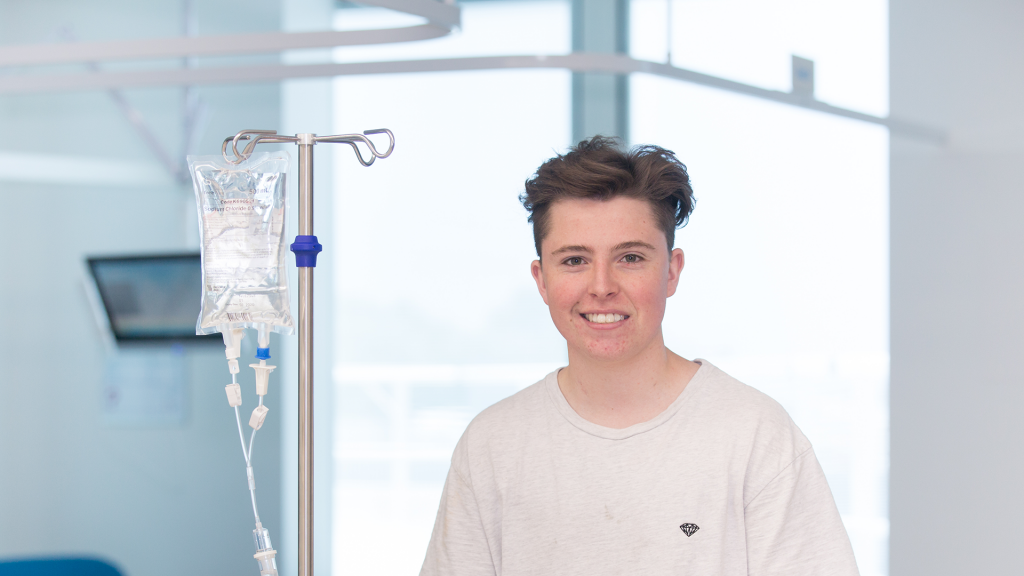Funding from the Children’s Cancer Foundation increases clinical trials offered to patients at Monash Children’s Hospital.
Clinical trials are the final step in a long process that begins with laboratory research. Through clinical trials, researchers test new ways of improving the long-term survival and quality of life of young people diagnosed with cancer.
Irina Arzhintar recently joined the Children’s Cancer Centre at Monash Children’s Hospital as the lead Clinical Trial Coordinator, a position funded by the Children’s Cancer Foundation.
“Clinical trials are extremely important. They provide the evidence we need to offer patients the best and most effective treatments for a whole range of diseases,”
Irina said.
“Only by doing clinical research are we are able to find treatment that is effective but also well-tolerated by patients.”
Irina said that some clinical trials are designed to find better-tailored treatment options from the standard of care options already available, while other trials introduce new treatment options for patients.
The Clinical Trials Unit aims to provide every young person diagnosed with cancer the opportunity to participate in a clinical trial to ensure they can receive access to optimal and innovative treatments.
For example, acute lymphoblastic leukaemia was incurable 50 years ago. Since the 1970’s, and until recently, no new drug has been developed for childhood ALL, yet the cure rate has steadily risen. This is because clinical trials have provided data about biology, genetics, cancer cell responses to treatment, and responses to different drug combinations. The cure rate of standard risk ALL now sits at 90-95%, and this could not have been achieved without clinical trial research.
Irina manages the day-to-day activities of the Clinical Trials Unit, which is part of a larger multidisciplinary team of specialists that are dedicated to patient care through a best practice approach.

“The most important thing is that patients understand what is involved if they decide to participate in a research trial,” Irina said. “So, in the beginning the treatment team will spend quite a lot of time going through the trial information. Clinical trials consent form can include up to 20 or 30 pages of information.”
Irina and her team maintain a portfolio of clinical trials for common malignancies, but have also expanded the number of diagnostic disease groups. Currently, clinical trials are available for approximately 40% of all newly diagnosed and relapsed diagnostic groups. With new trials being added to the portfolio, it is anticipated that this percentage will increase to 50-60% by the over the next 12 months.
However, Irina said: “The most important part of recruiting participants to clinical trials is to have a team of clinicians who believe in its benefits.”
“The generous contribution of the Children’s Cancer Foundation has increased the capacity of the Clinical Trials Unit, opening a wider portfolio of clinical trials that will lead to more available treatment options.
“I feel privileged being a part of a multidisciplinary team that always has child’s best interest at heart and concentrates on better patient outcomes,” she said.